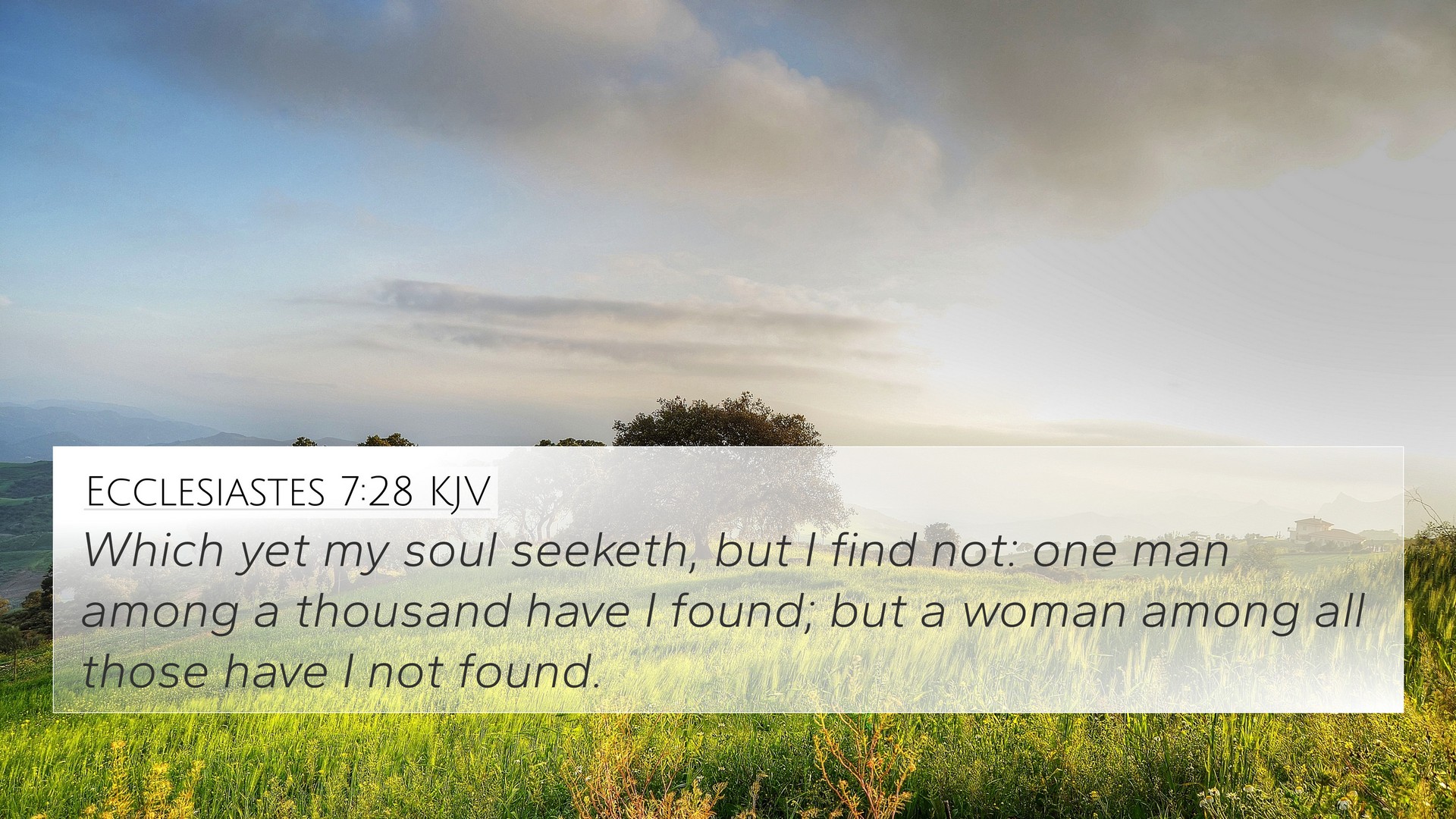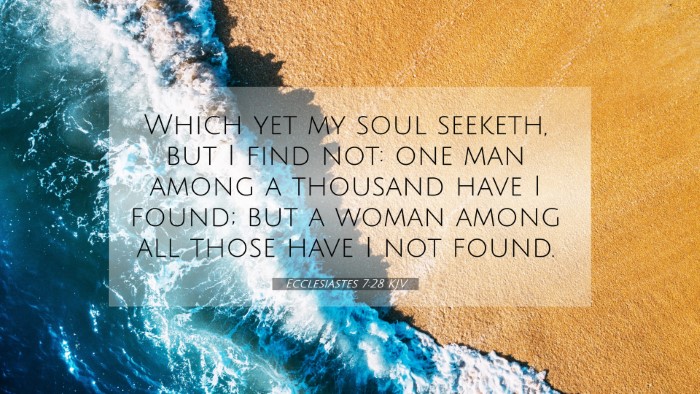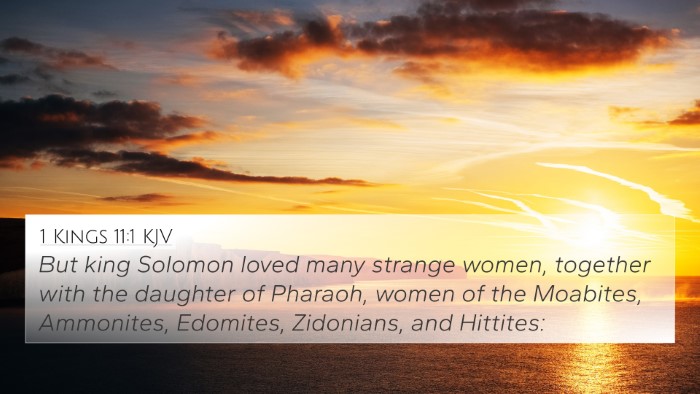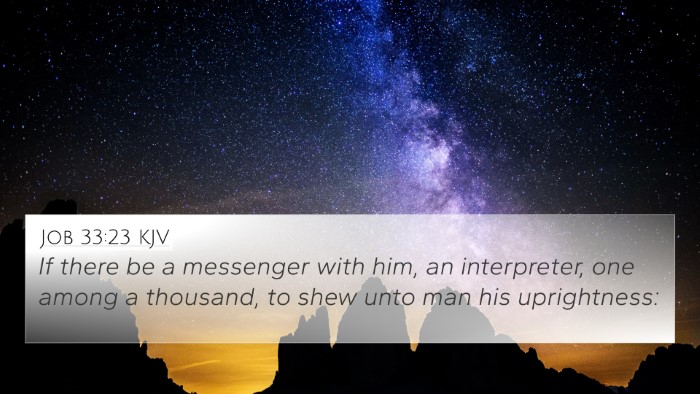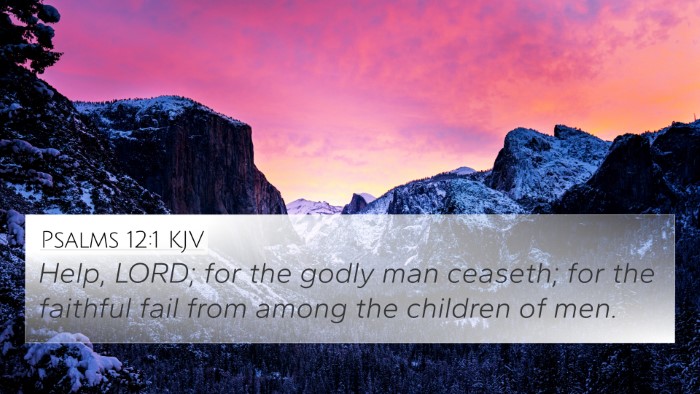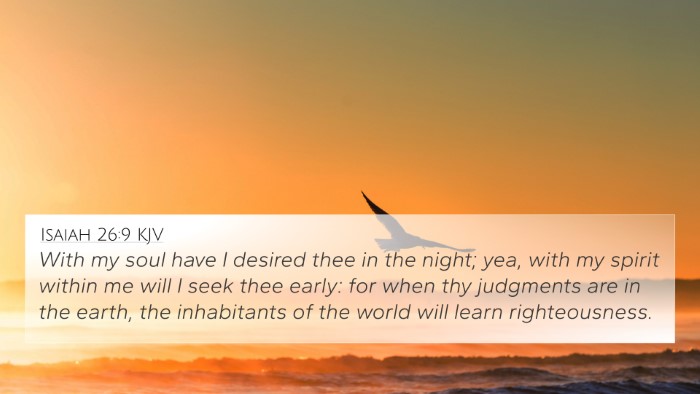Ecclesiastes 7:28 - Verse Meaning Summary
Ecclesiastes 7:28 states, "Which yet my soul seeketh, but I find not: one man among a thousand have I found; but a woman among all those have I not found." This verse reflects the author's existential search for wisdom and understanding within the realm of human relationships.
The context of this verse is rooted in the author's observation of human behavior and societal norms. The phrase "one man among a thousand" suggests that the speaker has encountered only a few wise individuals, reinforcing the rarity of true wisdom.
Key Insights from Commentaries:
-
Matthew Henry's Commentary:
Henry emphasizes the difficulty of finding a truly wise and righteous man in a world filled with folly. He notes that the search for wisdom leads to a disheartening realization of mankind's fallen nature.
-
Albert Barnes' Notes:
Barnes highlights that the speaker's "soul seeks" wisdom, indicating a deep longing for truth and enlightenment. He reflects on the societal expectations placed on women, hinting at their struggles in a patriarchal context.
-
Adam Clarke's Commentary:
Clarke discusses the rarity of virtue and wisdom, suggesting that the quest for a faithful companion is fraught with disappointment. He interprets "one man among a thousand" as a hyperbolic way to express the scarcity of such individuals while providing a deep moral insight into the human condition.
Cross-References to Ecclesiastes 7:28:
- Proverbs 20:6 - "Most men will proclaim every one his own goodness: but a faithful man who can find?"
- Romans 3:10 - "As it is written, There is none righteous, no, not one."
- 1 Peter 3:7 - "Likewise, ye husbands, dwell with them according to knowledge, giving honour unto the wife, as unto the weaker vessel."
- Jeremiah 5:1 - "Run ye to and fro through the streets of Jerusalem, and see now, and know, and seek in the broad places thereof, if ye can find a man."
- Proverbs 31:10 - "Who can find a virtuous woman? for her price is far above rubies."
- Job 14:1 - "Man that is born of a woman is of few days, and full of trouble."
- Ecclesiastes 12:13 - "Let us hear the conclusion of the whole matter: Fear God, and keep his commandments; for this is the whole duty of man."
Thematic Connections and Interpretation:
The verse presents a poignant perspective on human wisdom and relationships, highlighting the scarcity of noble qualities in individuals. This theme resonates across other Biblical texts, where the pursuit of righteousness is often depicted as challenging.
Understanding the Context:
Ecclesiastes is often viewed as a reflection on the meaning of life, emphasizing the futility and impermanence of worldly pursuits. In this light, the writer is both discouraged and introspective about the condition of humanity, reinforcing the importance of seeking wisdom diligently.
Application for Readers:
Readers are encouraged to reflect on their own lives and relationships, seeking wisdom in their connections with others. This verse challenges us to consider not only what we seek from others but also how we embody the qualities of wisdom and virtue ourselves.
Cross-Referencing Bible Studies:
For those interested in deepening their understanding of this verse, tools for Bible cross-referencing can enhance one's study experience. Employing a Bible concordance or Bible cross-reference guide can reveal significant connections between scriptures, allowing for a comprehensive analysis of thematic elements such as wisdom, virtue, and the human condition, particularly in how these themes are presented across the Old and New Testaments.
Conclusion:
Ecclesiastes 7:28 prompts us to engage in critical self-reflection and to consider the often-overlooked virtue of wisdom in our lives and in others. The quest for honesty and integrity serves as a call to evaluate not just our relationships but also the qualities we cherish and cultivate within ourselves. This verse stands as a reminder of the complexity of human nature and the divine expectation of righteousness amidst a world rife with folly.
